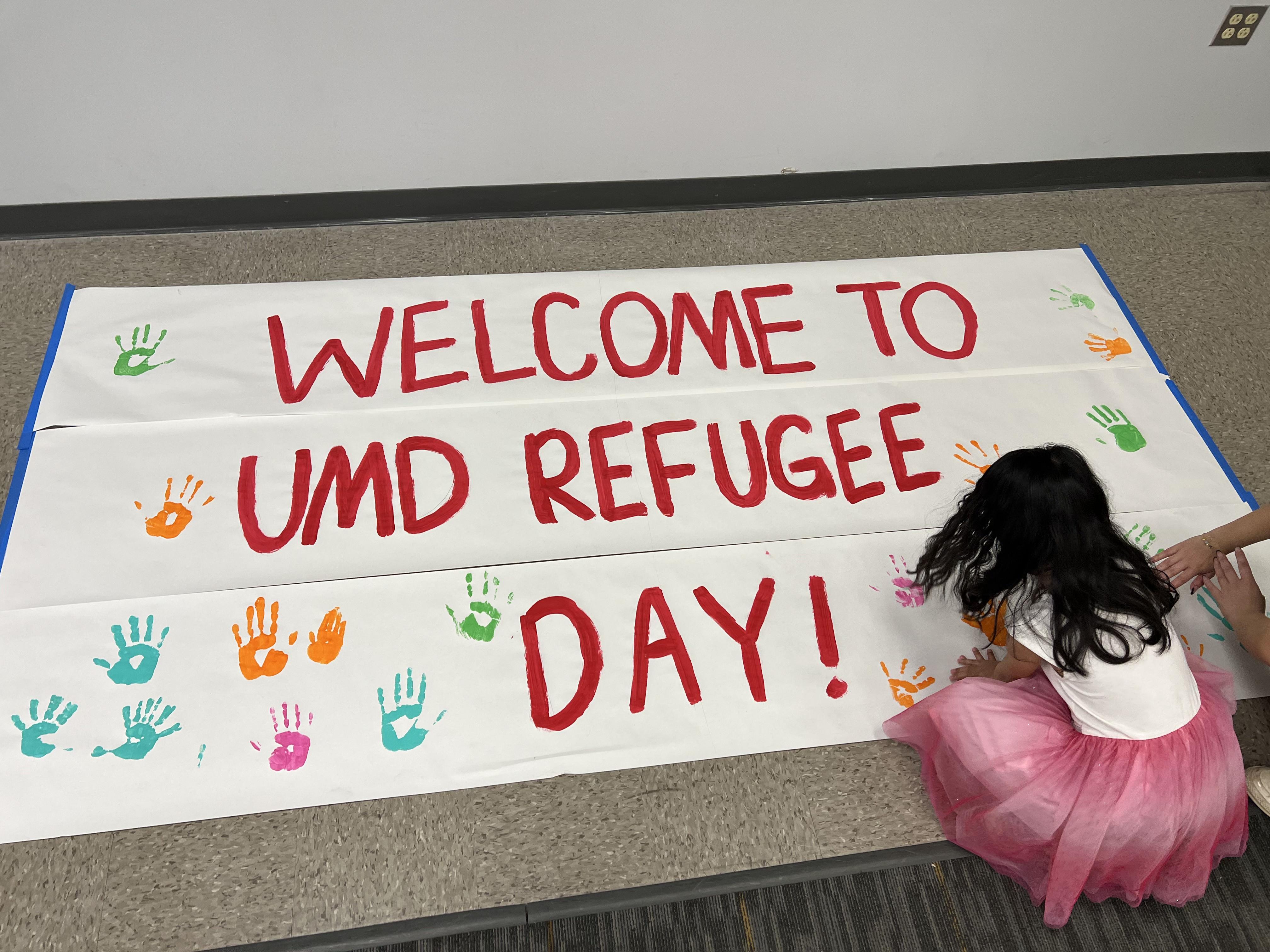
In March 2024, the inaugural Provost’s Do Good Innovator Awards winners were announced. Out of 57 faculty named, Dr. Sarah Kilmer and Dr. Justine DeCamilis of the College Park Scholars program were rewarded for their joint work on the Terps Community Mentors program (TCM). Piloted in 2021,TCM builds bridges between first-year International Studies (IS), Justice & Legal Thought (JLT) students, and Afghan refugee families at the Parkview Garden Apartments in Riverdale. In the three years since its debut, these College Park Scholars students now routinely visit the Parkview Garden Apartments in Riverdale—cleaning up creeks and streams, donating meals, distributing school supplies and fostering big brother/sister relationships with the young children around the complex.
“It’s a mutual exchange of culture and ideas and language, and so we see the benefit for both our students and these communities,” said program co-lead DeCamillis, and continued, “[The Afghan refugees] are our new community members, just like the freshmen that we work with.”
As the university community moves to take on the world’s grand challenges, it can be difficult to scale down substantial issues like ongoing global conflict and migration into actionable items. Additionally, these topics have become highly polarizing in recent years. Unless you’re directly affected—the American college student forms their opinion from their own research and experiences. How can you empathize with groups you’ve never met?
“Once [the students] meet the little kids, they understand that [the refugees] were forced to leave their homes for fear of death. I see a lot more empathy and compassion, and they get curious and ask questions—it builds discussion and they come away with a better cultural understanding and appreciation for what they have in their own lives,” said Kilmer.
Katerina Hernandez ‘26, sophomore criminology & criminal justice student, shared that her experience in TCM allowed her to rapidly build essential skills in her field, such as conflict management, leadership, and interpersonal communication—further, the program has served as a gateway to other service learning opportunities at UMD.
“I never really volunteered a lot prior to TCM, but since then I’ve participated in a lot more volunteer opportunities like the Food Recovery Network and The Petey Greene Program where I tutor juveniles in jails…I have learned to be a lot more patient, sympathetic and understanding as I worked with people of all ages and backgrounds,” said Hernandez.
For first-year students like Joy Kim ‘27, the program has allowed her to continue to grow in refugee work, which she first took up in high school. Additionally, TCM has shifted Joy’s own personal narratives about what it takes to foster positive change.
“Since participating in the program, I've realized that my outlook on making an impact and serving my community has changed. Often, I thought of making an impact as having to fulfill big opportunities or to go somewhere further away—I've realized that there are needs in our community just a few minutes away. I've found that making relationships with the children has been a way I can serve those around me—meeting their needs such as helping them with math, playing games, or providing them with science worksheets has been a way to make an impact,” said Kim.
Looking towards the future of TCM, DeCamillis and Kilmber hope to ramp up the size and scope of the communities they tend to in the greater College Park area. In addition, they hope to set an example of a successful program expansion for the university as a whole, being able to adjust for increased demand for support in light of evolving global conflict. However, they have no doubts that students will rise to the occasion—not only to the direct benefit of refugees who receive their aid, but also to themselves as they reap the personal growth benefits that come with giving back.
“We’re only going to be welcoming more people into our community and that labor is hard. But students love to volunteer to do this work…and students that are more involved in their community are more likely to graduate, report satisfaction at UMD, all these things are about connecting—they can do that through this work,” said DeCamillis.
Until then, DeCamillis, Kilmer and their students will remain focused on their why.
“There’s contant news and notifications and you can’t feel or hold all of it because you won’t be able to go through your day. But if you hear a story, you meet a person, you make a connection that will inform your thoughts on global politics. We are storytellers, we are moved by individual storytelling. It’s these small connections that change how we think about the world and our role in it,” said DeCamillis.
